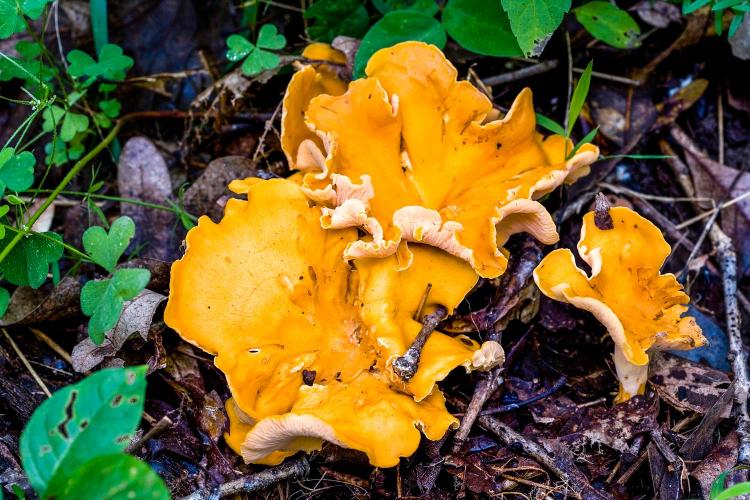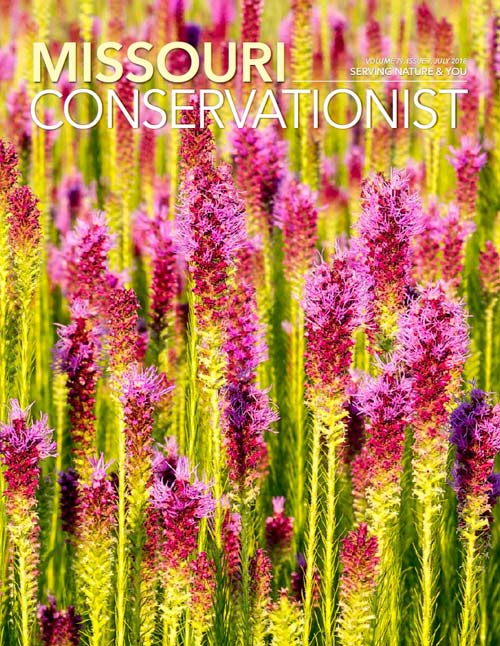Chanterelles | Cantharellaceae
Status
Common in suitable habitats
Size
- Height: 1–6 inches;
- Width: ½–6 inches
Distribution
Statewide, particularly in moist woodlands and river bottoms Chanterelles are funnel- or trumpet-shaped mushrooms with wavy cap edges. Most are bright orange or yellow, although one, the black trumpet, is brownish black.
Fresh chanterelles have a pleasant, fruity fragrance. To make sure you have a chanterelle, check the underside of the cap. Some species of chanterelles are nearly smooth underneath, while others have a network of wrinkles or gill like ridges running down the stem. The ridges have many forks and cross veins and are always blunt-edged.
Life Cycle
These organisms spend most of the time as a network of fungal cells (mycelium) in the soil, associated symbiotically with tree roots. When ready to reproduce, the mycelium develops mushrooms, which produce spores and create new mycelia elsewhere. The fruiting season for chanterelles begins in May and continues through October. Early fall is a good time to find chanterelles because heavy undergrowth and insects are on the decline and fallen leaves haven’t hidden them.
Ecosystem Connections
A variety of organisms, from tiny insects to mammals, eat chanterelles. The fungus
that gives rise to the mushroom forms mutually beneficial relationships with roots of trees, helping them absorb water and nutrients while the trees provide nourishment to the fungus.
Did You Know?
Chanterelles are a favorite among European chefs and are gaining popularity in the United States. If you collect more chanterelles than you can eat, preserve extra by sautéing them, then freezing.


This Issue's Staff
Associate Editor - Bonnie Chasteen
Staff Writer - Larry Archer
Staff Writer - Heather Feeler
Staff Writer - Kristie Hilgedick
Staff Writer - Joe Jerek
Creative Director - Stephanie Thurber
Art Director - Cliff White
Designer - Les Fortenberry
Designer - Marci Porter
Photographer - Noppadol Paothong
Photographer - David Stonner
Circulation - Laura Scheuler






















